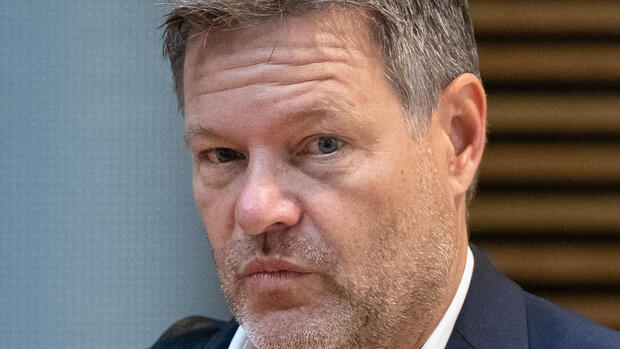The industry in Germany rates Habeck’s initiative positively.
(Photo: dpa)
Berlin Federal Minister of Economics Robert Habeck (Greens) wants to promote the development of a solar industry with considerable resources. The minister calls on companies to signal their interest in investment cost subsidies. The details will be published in the Federal Gazette around 3 p.m. today, Friday.
Habeck told the Handelsblatt that central transformation technologies require their own production capacities in Germany and Europe. It’s a question of economic security, he said. The project not only strengthens our technological sovereignty, but also our energy policy sovereignty.
Photovoltaic companies from China now produce more than 90 percent of the modules sold worldwide. The heavy dependence on Chinese manufacturers could prove to be a burden, especially in the coming years. The traffic light coalition has decided to massively expand photovoltaics. By 2030, photovoltaic systems with a capacity of 200 gigawatts (GW) should be installed. It is currently around 67 GW.
In addition, supply chain chaos, inflation and the energy crisis have led to project delays of months in some cases over the past two years. For this reason, too, the call for an independent European solar industry is getting louder.
“We want to support our industry in establishing permanent photovoltaic production in Germany by financially supporting lighthouse projects,” said Habeck. “The new EU subsidy framework offers opportunities for this, and we want to use them.”
Further funding planned
In order to promote transformation technologies, the EU Commission significantly expanded the temporary crisis and transition framework (TCTF) in March and created new opportunities for state investment cost subsidies, including for producers of PV systems and components.
Photovoltaic companies from China now produce more than 90 percent of the modules sold worldwide.
(Photo: dpa)
According to the ministry, lighthouse projects should be funded primarily in structurally weak regions. The assignment is based on the so-called “matching clause”. This means that the funding is granted up to the amount that an equivalent
investment project in a third country would be demonstrably received.
According to the ministry, the planned production capacity and technological, climate and environmental standards are particularly taken into account when evaluating the sketches. Any funding must be individually notified and approved by the European Commission. The expression of interest process runs until August 15, 2023.
>> Read here: All current developments in the energy crisis in the news blog
But the development of a solar industry is only the beginning. In addition, the BMWK also wants to support the development of production capacities in other areas such as wind turbines, electrolysers and large heat pumps.
Industry reacts positively
The Chinese company Longi, the largest solar company in the world, announced on Wednesday that it was planning its first plant in Europe – preferably in Germany. One is “already very intensive in the preparations,” said Longi founder and President Zhenguo Li only in an interview with the Handelsblatt.
The industry in Germany rates Habeck’s initiative positively. Gunter Erfurt, head of the solar group Meyer Burger, said Europe is currently not a good place to invest in the solar industry. He had openly threatened to move production to the United States. “We are currently seeing many initiatives in many regions that offer local companies a lot of funding and industrial policy support if they produce technologies for the energy transition,” he said in the Handelsblatt podcast Today.
More: Seven ideas against the climate chaos
